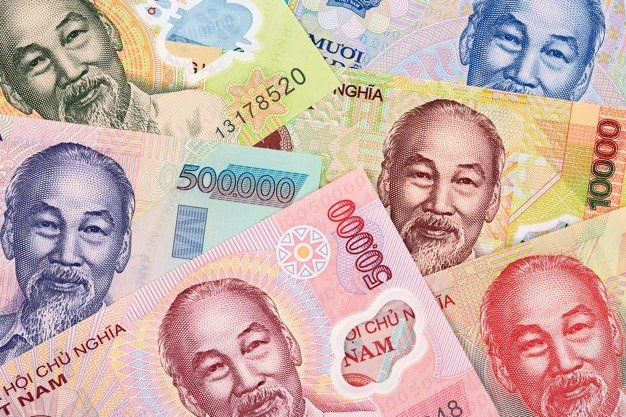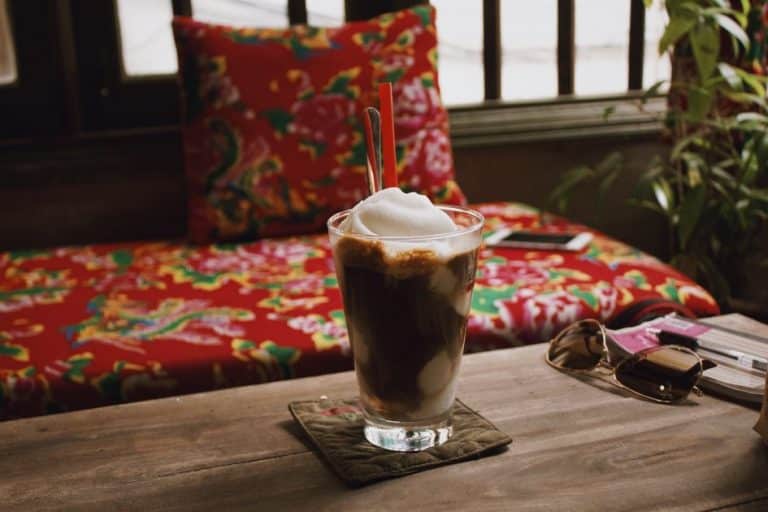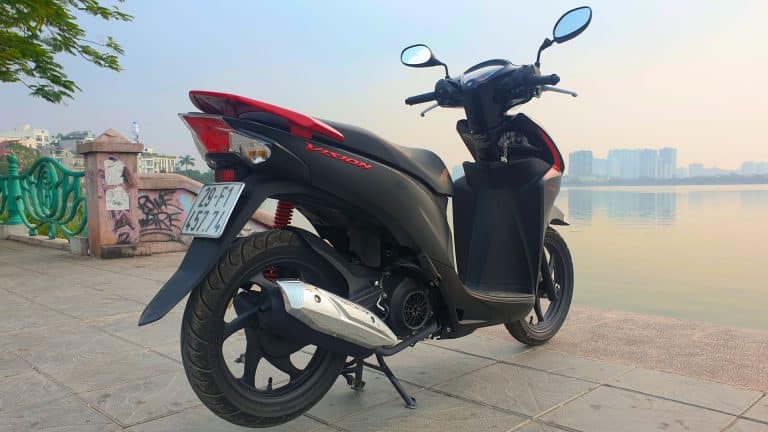A Very Low Cost of Living
Compared to the western world, the cost of living in Vietnam is extremely low. Because Vietnam is still underdeveloped in many ways, those who choose to live here compromise the living conditions they’re used too. However, over the last decade, this has changed considerably.
Vietnam now has one of the fastest-growing economies in the world. And as a result, the country is developing at an alarming rate. Major cities such as Ho Chi Minh City and Hanoi are able to offer quality living conditions for expats and, all for a fraction of the living cost back home.
To add to this, economic growth has meant there is now a high demand for an English speaking generation and therefore a demand for qualified English teachers to teach in Vietnam.
Due to this high demand, the average salary for an English teacher in Vietnam is $1000-1200. Which may not seem like a lot at first. But when you consider the cost of living in Vietnam, it’s pretty damn good.
Cost of Living in Vietnam
At Rentabike, so many of our long-term customers live and teach in Vietnam. We welcome them into the Rent A Bike family and find ourselves helping them with more than just a set of wheels. In this post, we wanted to shed a little light on the true living costs of life in Vietnam.
Firstly, we will give you a quick summary and explain the different salaries you can expect for certain teaching jobs in Vietnam. Then we will break down the different day-to-day costs you need to consider before choosing Vietnam as your new home. Taking food, drink, and lifestyle into consideration. Whilst also explaining where you can cut costs if you want to save.
Lastly, we will explore the additional setup costs you may not be aware of. Often these costs can be hidden by potential employers and can come as somewhat of a surprise to new English Teachers in Vietnam.

Teacher Salary vs Average Monthly Cost
Below is a breakdown of what a teacher (living an average lifestyle) in Vietnam will spend per calendar month:
Food and drink: 4,000,000VND ($200)
Accommodation: 8,000,000VND ($350)
Electricity and water: 1,000,000 ($50)
Motorbike rental and commuting: 1,700,000 ($75)
Exercise or other activity: 1,500,000 ($65)
Total: $750 (give or take)
And to be honest, we’ve been generous here. It is possible to live for less. If you’re considering the move because you want to save as much money as possible, then you can! Cutting costs across the board is perfectly doable.
Teacher salaries in Vietnam vary greatly depending on the type of teaching job you have. Being a teacher in Vietnam is not as simple as going to a public school 9-5 during the week. Positions vary throughout the day, evening, week and weekends. Teaching hours vary between 25 to 40 a week. Students can be anywhere between the ages of 4 and 64.
The amount a teacher earns while working in Vietnam is very much dependant on their experience, willingness to work additional hours and, where they work. For example, International schools pay more but require more work. Private language centres have fewer hours but are more flexible. And public school teachers have more of a free for all approach but work long hours and have to get paid more to match.
On average, a teacher will take home $1200 after tax.

Day-to-day Cost of Living in Vietnam
The cost of living in Vietnam is much like anywhere in the world. Day-to-day costs are very much dependent on your lifestyle. However, if you want to save, teaching in Vietnam will be perfect for you.
It is possible to eat out for as little as $1. And if you want to do this every day, it’s STILL possible to save. In addition to this, food in Vietnam is absolutely delicious and available almost everywhere. A night out on the town is also extremely affordable. With beer as cheap as $0.50, you really can’t go wrong. The spirits can creep up on your nightly budget if you are not careful. So keep track of the gin and tonics.
Below we will list day-to-day costs of living in Vietnam and summarise with an average daily cost.
Food and Drink Cost in Vietnam
The cost of food and drink in Vietnam varies greatly. As previously mentioned, if you eat like the locals, you can eat for as little as a few dollars a day. Whereas, if you fancy a western treat, you can expect to pay much more. That being said, it’s still far less than you would expect to pay back home!
Food
A standard Vietnamese street food dish, such as pho, com tam, banh mi, and my xao, will cost between 20,000VND-80,000VND ($1-4). As a result, many teachers find themselves eating out for every meal of the day. Buying ingredients to cook a meal will often cost more than a traditional Vietnamese dish. This explains why so many teachers will find themselves eating out for every meal!
Whereas meals in western-style restaurants are much more expensive. A western meal such as a burger, brunch, sandwich or Indian will cost around 150,000VND-300,000VND ($7-13). That being said, at these prices, eating in these restaurants to get your western fix is perfectly affordable a few times a week.

Drink
Drinks out can also be extremely low in cost. A local or bottled beer will cost between 10,000-40,000VND ($0.50-2) and a craft beer between 90,000-140,000VND ($3-6) and cocktails are a very similar price. In short, getting a bit merry will not break the bank!
In addition to this, coffee culture in Vietnam is extremely popular, with cafes on most street corners. And may we add, a choice of some of the most delicious coffees in the world! Most teachers will find themselves killing time, chilling with an ice-cold coffee and a book. A cup of Vietnamese coffee costs as little as 15,000VND ($0.70) and an average we.
In summary, the average teacher who eats local food 75% of the time, with the occasional western treat and night on the town can expect to spend approximately 1,200,000VND ($50) per week on food. And have a good time!
Please remember, this cost is a rough estimate and the cost of food and drink depends on the individual and their lifestyle.

Accommodation Cost in Vietnam
Accommodation costs in Vietnam vary considerably based on accommodation style, amenities, and location, much like anywhere else in the world. As a whole, you can expect to pay more for accommodation in Ho Chi Minh City than you would in Hanoi and, much less if in one of the smaller cities.
Westerners in Vietnam can also expect to pay more than the Vietnamese for accommodation. Don’t take it personally. When one of your Vietnamese colleagues laughs at how much you’re spending on rent remember how much more you’re being paid. As an English teacher in Vietnam, your salary will be considerably more than the average Vietnamese person.
Most teachers will pay around $300-500 a month on rent. Which once again, compared to the Western world is pretty decent. For this price range, teachers can expect to live in a shared house or flat, a small 1 bedroom flat or a studio apartment. However, as we have already mentioned, accommodation in the north is lower and teachers can expect to get more for their money.
Those who want to keep their costs down while also making friends end up living with their colleagues or friends. This way it is possible to live in the top end of accommodation choices in Vietnam at a reasonable cost. If you’ve always dreamed of living in an apartment with a pool, then this is your time!
To read more about finding an apartment and what you can expect for your money, read our What Teaching in Vietnam is Really Like post.
In summary, the average teacher will spend at least 8,000,000VND ($350) on accommodation every month. With the addition of 1,000,000VND ($50) on electricity and water.
Typically, houses are very close together and the city looks like a game of Tetris. However, don’t let the outside fool you. Often when you go inside the small buildings, you will find some beautiful modern designs and gorgeous rooftop views from your apartments. Many of the taller houses have elevators in them. It is also common to have a business and shops in-between living houses. there are many alleyways full of apartments and shared houses.
Cost of Commuting and Getting Around
99.9% of the time, the best way to get around in Vietnam is by motorbike. Teachers arriving in the country have the freedom to learn how to ride a motorbike and experience the freedom of a motorbike in Vietnam. Approximately 70% of teachers in Vietnam will at some point rent and travel around on their own set of two wheels. Hence so many of our long term customers are teachers!
Most teachers will have to commute for at least 15 to 30 minutes every day. This is due to the fact that language centers and schools spread across the country and in all major cities. As a result, many will rely on their own motorbike to get them from a to b. A true Vietnamese experience!
Renting a basic motorbike in Vietnam will cost anywhere between $40-100 pm. The cost of monthly petrol is very cheap for a foreigner too. There are hundreds of different motorbike rentals to choose from. However, be warned, many of them aren’t as legit as you might think. There are very cheap options when it comes to renting, but often these motorbikes aren’t serviced or well maintained.
Trust us when we say it’s worth paying a little more for rental to avoid breaking down in the middle of nowhere or experiencing a serious issue that results in an accident. Cheap rentals aren’t your best option for surviving on Vietnamese roads.
Cost of Motorbike Rental at Rentabike
At Rentabike, our motorbikes are trustworthy and guaranteed to give you the support you need to safely get around in Vietnam. As a family-run business, we do everything in our power to ensure the safety of our customers. Not only do we provide high-quality motorbikes, but we also provide ongoing support whenever and wherever our customers may need.
All of our motorbikes are well maintained and serviced monthly to ensure that any potential issues are addressed before they affect our customers. All of our bikes are priced based on their quality and style.
Our customers are also given a complimentary lesson for surviving Vietnamese roads and direct contact to the owner Danny. So when you’ve taken a wrong turn somewhere 300km North of Hanoi, he’ll be there to help.
The average cost of renting one of our motorbikes is 1,700,000VND ($75pm).

Additional Costs to Consider When Teaching in Vietnam
There are various different costs you should consider before you decide to teach English in Vietnam. Many of these specific costs are down to the individual and their lifestyle. However, most teachers will find themselves looking at these costs prior to arriving in Vietnam. One of the biggest additional costs teachers have is exercising.
Exercise
Gyms in Vietnam vary greatly in quality and style.
Western-style gyms can be very expensive and similar to western prices. Standard gym membership in one of the high-end western style gyms with air-conditioning, access to new equipment and classes is approximately 1,500,000-2,000,000VND ($64-86) pm.
Basic Vietnamese gyms are much more affordable. These gyms are often much smaller, lacking in equipment and often don’t have air-con. However, with a bit of research, it is possible to find basic gyms with a decent range of equipment and access to classes. You can expect to pay 500,000-1,000,000VND ($21-43) pm.
In addition to these, there are various different options for exercising whilst living in Vietnam. For example, yoga is very popular in Vietnam and many teachers will opt for a membership at a yoga studio as opposed to a gym.
Climbing, boxing, cross-fit, and martial arts gyms are also available in both Hanoi and Ho Chi Minh City. Teachers looking to learn a new skill or try a different way of exercising should check them out!
In summary, most teachers will pay around 1,000,000VND ($50) pm exercising.
Socialising
Obviously, this is another cost that very much depends on the individual and their lifestyle. However, most teachers will find that over time they will spend more and more money on socializing. Which isn’t a bad thing, it just means you’ve settled and you’ve made friends.
If you have traveled to Vietnam alone, you can join facebook groups and take part in meet-ups to socialize and make some new friends. Often you will meet new people through your schools or any hobbies you take part in.













